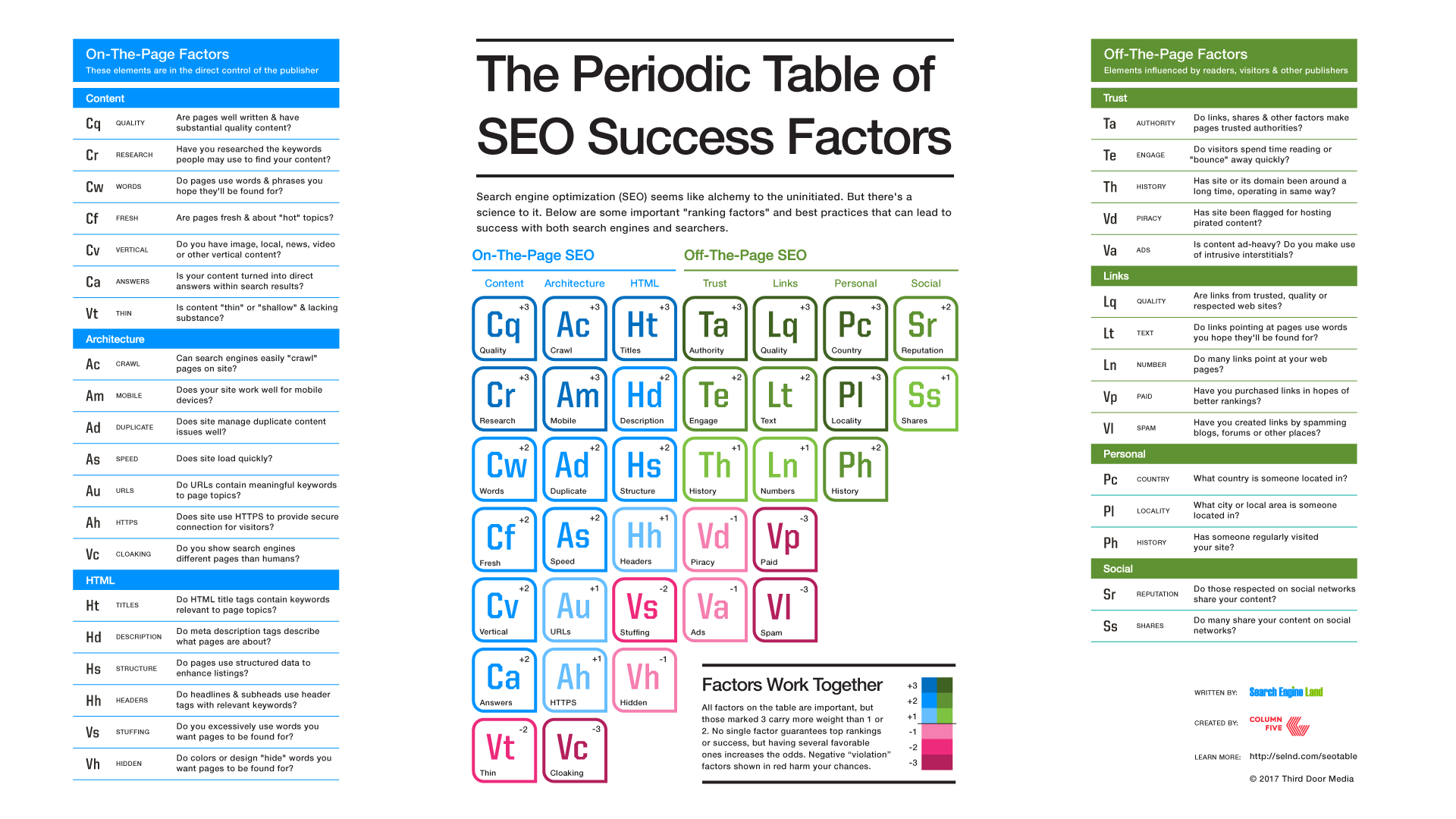If you want more search engine traffic, find a good keyword. Optimize your website keywords and you will rank faster. Have you ever got that advice? In fact, how many times did you get them? I bet a lot!
And that is because keywords are the first thing you should learn and focus on when you start optimizing your content for SEO.
But, what exactly does SEO optimization means?
The Basics
SEO stands for Search Engine Optimization. According to Wikipedia, it is a process of increasing the visibility of a website to users of a web search engine. Or to simply, a process of getting traffic to your website.
If you are new to SEO, take a look at this short video which covers the basics:
Behind The Scene
How is it all done? Complex algorithms look for specific factors from your website in order to rank the content appropriately.
The ranking is the order that pages appear in a search engine result page (SERP). It is the result you see when you search for a certain topic in Google or whichever search engine you use.
Even though Google doesn’t say which those factors are, through a combination of research, texting, and experience, we know that some of the important ones are:
- Keyword usage
- Structure of the site
- Site speed
- Time spent on site
- Number of links
- Quality of those links
- Mobile compatibility
Search Engine Land has a innovative presentation of all the key concepts you need to know for SEO, made in a Periodic Table of SEO Success Factors.
How Is It Ranked
All the algorithms are designed and made by humans, however, the rankings are determined by the outcome of those algorithms. None of the Google employees interfere in website rankings. It is entirely dependable by the algorithms.

But once a web page ranks on the first page, it doesn’t mean it will stay there forever.
Since Google is constantly reviewing, adjusting, and updating search results, rise and fall in rankings depend on one important factor: how your website compares to the other websites you are competing with.
There is no hidden button that will guarantee you the first place in the ranking. But by paying attention to the factors which I mentioned, and actively working on improving them, your chances for higher rankings are greater than those who aren’t paying attention to those factors.
Keyword Usage
Keywords are specific phrases that are driving traffic to your site. In the term of SEO, this would be the phrase that you want to target, often called the “target keyword”.
Look at the title of this page: “what is SEO optimization”. What do you think, what is the target keyword here? Correct, in this case, “SEO optimization” would be the target keyword.
Generally, there are two types of keywords:
- Short Tail Keywords – Keywords that are one to three words long. Can you think of an example? Common ones would be: Make money online, Lose weight fast, Trading online.
- Long Tail Keywords – More specific keywords which are longer and better describe the desired question. With examples above, long tail keywords would be: How to make money online with blogging, Is it possible to lose weight in less than 4 weeks, How can I trade online and make profit legit.
As you can see, long tail keywords are more profitable because they will generally drive more traffic to your site, hence, chances for ranking higher are better.
Structure Of The Site
This is one feature that is often overlooked. The better your site structure is, the better your chances of higher rankings are.
Which is very logical when you think of it. How long would you stick around on the site that is not clear to read, has no poor composition overall, hard to navigate through the menu and hard to find relevant content? I bet not long.
So when someone visits your site and they feel comfortable reading it, they will stay longer which will lead to ranking improvements.
A good site structure is very important for good SEO: it provides good user experience and better crawling (Google bot crawl your site in order to index your content for search result).
How to make a good site structure? Here are simple guidelines to follow
- Plan out a hierarchy for your website. Keep it simple and logical. If your website is complicated, how long do you think users will hang around trying to manage their way through your content?
- Keep the coding simple. This is especially important if you are developing your site on your own. Plain HTML and CSS are your best friends here. Coding in Java, Flash, and Ajax can slow down or even limit the crawler’s ability to cover your site efficiently.
- Simplify your navigation. Limit spread of search to few clicks (preferably three or less) to reach every page. This will enable easy search for your visitors and better crawling.
- Create a header with your main navigation pages. This is also one of the things where less is more. While the dropdown menu may look cool, they do not enhance SEO. If you are using a footer menu also, be sure to have the same links on both your top navigation menu and footer menu. Otherwise, it can complicate the user experience.
Site Speed

According to research made by Google in 2018, 53% of mobile users leave a site that loads longer than three seconds. And it gets even worse since the average load time for the most of sites is around 8-11 seconds.
Ten seconds might not seem long, but keep in mind that with every second more, you lose visitors. And not only that, your site lose customers trust.
Remember: good news travels fast, but bad news travels faster. You don’t want your site to be known as slow loading one.
Links And Quality
Internal linking is important because it keeps visitors at your site and it tells the search engines which pages are important and how to get there.
Interlan links enhance visitors navigation, which means they will find more useful stuff at your website.
The main rule is that every page should have some links to and from a page. The more internal links you have, the better. Just don’t go crazy with it, because your visitors will get confused.
Who Doesn’t Use Mobile Phone?

That is a very important reason why your website should be responsive. Responsive web design is an approach to web design that makes web pages render well on a variety of screen sizes.
Just take a look at these statistics:
- In 2018, 58% of site visits were from mobile devices. In 2017, that number was 50.3%.
- Mobile devices made up 42% of total time spent online.
- It is estimated that by the end of 2019, 63% of all mobile phone users will access the internet from their phone.
- 82% of people use their smartphones to research purchases they are about to make in a store.
Stats were taken from hostingfacts.com.
Conclusion
No matter are you new or old in internet marketing, you want your site to be optimized for SEO. With so many websites being established, and countless of articles going online each day, you really need to have an advantage over your competition.
And what better than having your website SEO friendly? There really is no reason you should avoid these steps.
Is your website optimized for SEO? Did you learn something new today? Tell me have I missed something, I would love to hear from you!
Write down in the comment and I will get back to you!
Best wishes,
Dalibor.
P.S. For more details how to structure a website for SEO, check this awesome Neil Patel tutorial.




2 thoughts on “What Is SEO Optimization”
This is a great post and I found it as I was searching the internet looking for details about SEO as I have a fairly new website.
It’s staggering the number of people using phones these days to surf the net. One thing I will be working on next is optimizing my site more for mobile.
I am also learning about keywords and how/where to use them in my posts. You have helped me to understand that as well. Thanks
Hello Hellen,
Thank you for your comment, I really appreciate it.
I am glad you learned something new. It is true that many people are using phones to surf the net. And with that in mind, having a responsive website is a crucial part of developing your business, because if you don’t develop your site in that direction, you are missing a big part of the potential traffic.
I learned a lot about SEO and keywords in the Wealthy Affiliate. You can read my review about it here. If you have any questions about it, or about SEO and keywords, I will be happy to help you.
Best wishes,
Dalibor